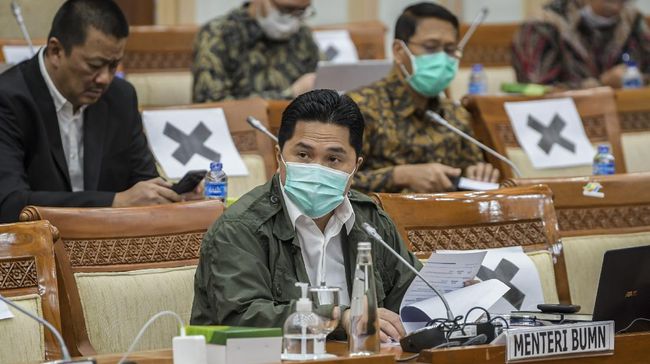The Ministry of Health wanted to clarify the cases of health professionals, doctors and nurses who decide not to undergo the serum against Covid: “The anti-Covid vaccination of health workers is an essential requirement to carry out the professional activity. new enrollments in the register, and must persist over time, in every phase, under penalty of suspension from the exercise of the profession. Therefore, the suspension ex lege from the exercise of professional activity due to lack of vaccination can only be considered as suspension tout court, and not limited to activities in contact with people “.
Stop to unvaccinated health workers: the note from the Ministry
The clarification came through one note ministerial sent to all the Federations of the Orders of the health professions, a communication that today the Federation of the Orders of Surgeons and Dentists (Fnomceo) has circulated to the 106 territorial Orders. Therefore, for non-vaccinated people who are suspended, “any recourse to the Central Commission for Health Professionals (Cceps) will in no case have the effect of preventing the application of this suspension, which is not a disciplinary sanction. The clarification of the Ministry of Health, which adheres to the address already provided by Fnomceo to the Orders, brings certainty about the actions within the competence of the Orders themselves. and the qualification “, comments the president of Fnomceo, Filippo Anelli
“We appreciated – continues Anelli – the commitment of the Minister of Health, Roberto Speranza, and the attention to the issues raised by the Federations of the Orders of the health professions. This circular is, in fact, the result of a listening process promoted by the Minister, which has worked to overcome the problems that have emerged and to give uniformity to the application of the law on the national territory “.
The Order of Doctors: ” 370 colleagues lost, deaths zeroed with the vaccine ”
“Italians continue to trust their doctors, as well as confidence in the National Health Service is growing. They are parallel things. Today we are unequivocally facing the pandemic with dignity thanks to the effort that professionals make and this despite having experienced a long period of cuts, difficulties in health care, with inequalities never closed, despite the block in turnover and despite the fact that the professionals are few, not enough. We rolled up our sleeves. And the profession paid a very high price: 370 deaths. It was a period of time. dramatic and even this narrative “, according to which citizens in full Covid emergency have not been adequately followed by their family doctors” is really unjustified: millions and millions of people have been treated at home and certainly not by someone else if not by their own doctors “. This is the reflection of the president of the National Federation of Medical Orders (Fnomceo), Filippo Anelli.
The leader of the Italian white coats, on the occasion of an event promoted by Egualia, the representative body of the generic equivalent drugs and biosimilars industry, recalled the dangers faced by family doctors, who continued in the darkest moments of the first waves of Covid-19 to take care of their clients. “With great difficulty – he added – because one of the most important shortcomings was safety: they have not been placed in conditions of appropriate safety to carry out their profession well. Now we are much calmer – he explained – because we have shown that the vaccine it works: after March, that is, two months after the second dose, the death curve as far as we are concerned is practically zero “.
The starting point for Anelli’s reflection came from a survey presented at the conference, conducted in June by SWG, on a sample of 4,534 people of age residing in Italy. Theme: the relationship of Italians with health. The survey shows that confidence has grown “towards a scientific approach to medicine and treatment”, explained Swg research director Riccardo Grassi. But also towards doctors: 62% of the interviewees, in fact, consider their doctor as the most reliable source of information, 46% a specialist doctor and 26% their pharmacist. 58% of respondents define themselves as rather attentive to their health (+ 5% compared to 2018), while the figure for those who consider health a question of balance between body and mind decreases by 12 percentage points (34% against 46% of the 2018). Among the interviewees, attitudes remain prevalent that attribute good or bad health more to external factors (genetic predisposition 46%, pollution 34%) than to their own behavior patterns (30%).
50% of the interviewees – in particular over-64s – declare that they carry out regular diagnostic tests, but the number of those who make regular visits to the family doctor is in sharp decline – probably due to the pandemic effect (20% against 26 % of 2018). Among the disorders reported as the most common, tiredness and fatigue are on the rise (62%, compared to 52% in 2018), osteo-joint pain (47%; 34% in 2018), insomnia (47%; 39% in 2018) ). Problems that 31% of the interviewees solved by resorting to self-medication, while 29% consulted the family doctor. In an era where fake news is often talked about, doctors and pharmacists remain a beacon. However, the Internet represents a key reference for one in three respondents (35%). Trust in the public health system is growing (72% against 63% in December 2019). More specifically, medical specialists are trusted by 90% of the sample, followed by Mmg (81%), pharmacists (79%) and public hospitals (78%). Confidence towards regional departments stops at 50%, while that towards the Ministry of Health reaches 60%, as well as for pharmaceutical companies (60-61%).
As for medicines, “the drug rejectors fell from 12% to 9% compared to 2018”, reports Grassi. The relationship with generics is full of gray areas: “Three quarters of the interviewees declare that they are well aware of what is meant when it comes to generic or equivalent drugs (75%), 90% recognize that the generic / equivalent costs less, but only 34% are certain that it is identical to the reference drug “. An underlying uncertainty that leads 29% of the sample to often buy generic drugs, 40% to buy them occasionally and 31% not to buy them or to buy them only rarely. In the process of choice, the role of doctors and pharmacists appears to be central, and two out of three respondents rely on their indications. Today, potential consumers are held back by habit (26%) and distrust (22%). The tendency to choose an equivalent drug or a branded drug also changes according to the type of drug to be purchased: 61% of the interviewees would certainly buy a painkiller or an ‘equivalent’ anti-inflammatory, only 35% a contraceptive.
– .


